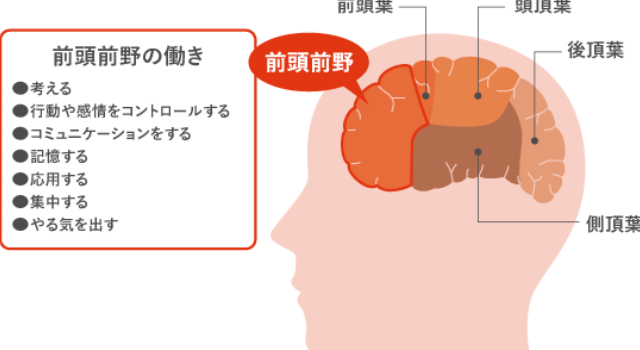When an individual’s brain activity is measured during interpersonal communication such as speaking directly while looking at another person’s face, his/her prefrontal cortex clearly shows activity; however, if the same individual talks to someone by phone or video conference, it was found that the prefrontal cortex is not active. The same results were also seen with smartphones and PC’s to write text or search for ‘kanji’ words.
In other words, the prefrontal cortex does not work actively unless an individual is involved in the task of moving their fingers in a complex way, meeting people face-to-face, handwriting texts or looking up ‘kanji’ in a paper dictionary.
By using smartphones and PC’s, there is no longer a need to meet and talk directly with people and ‘kanji’ can also be easily searched and sentences created conveniently as well. However, what has been lost in this easy and convenient lifestyle is the opportunity to actively work the prefrontal cortex, which is the center for information processing and thinking. So how will our brain start to change if we continue to “not” use our prefrontal cortex, especially in children and youngsters who are immersed in games and smartphones? Eventually, brain function will continue to decline.









